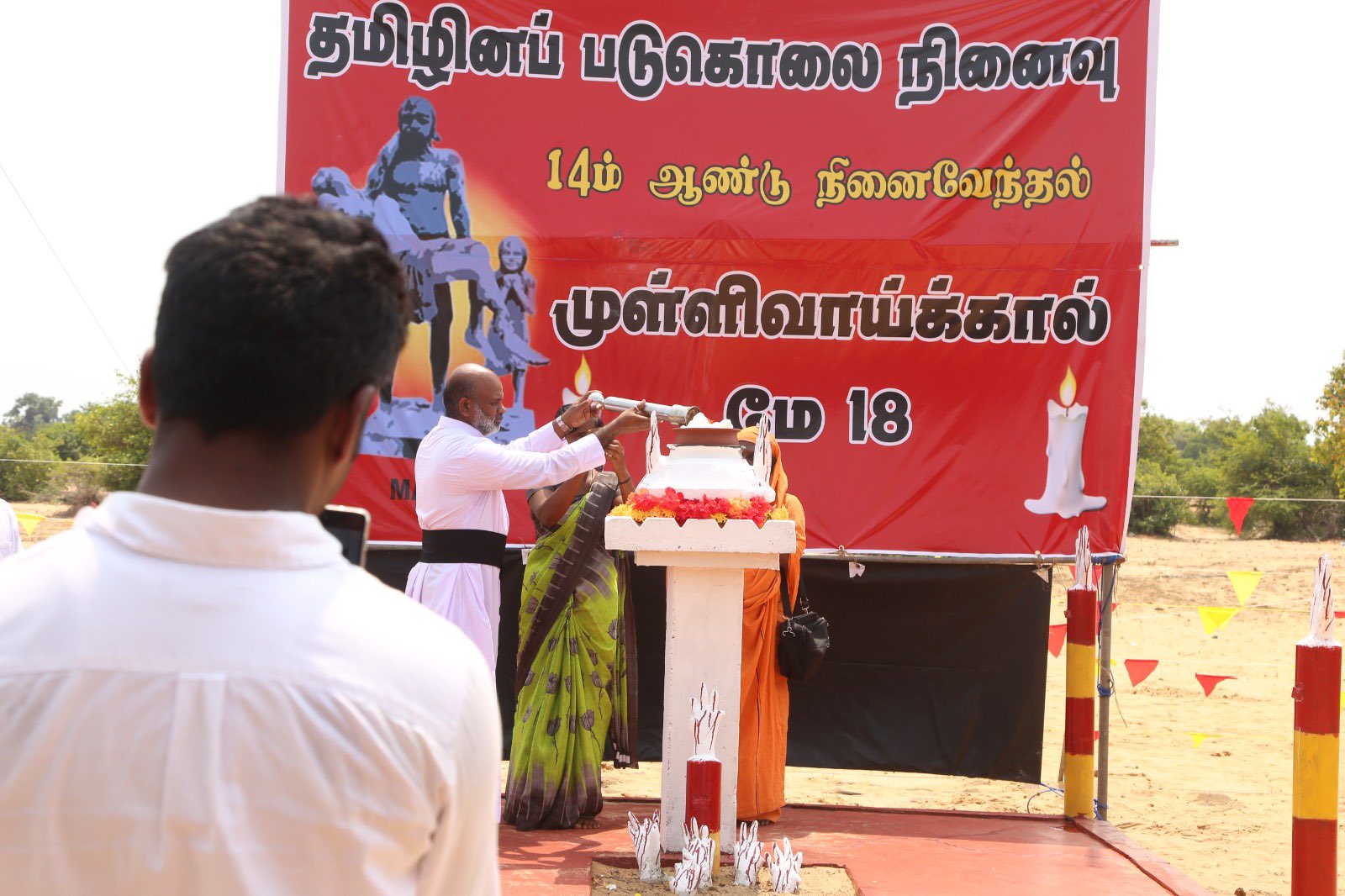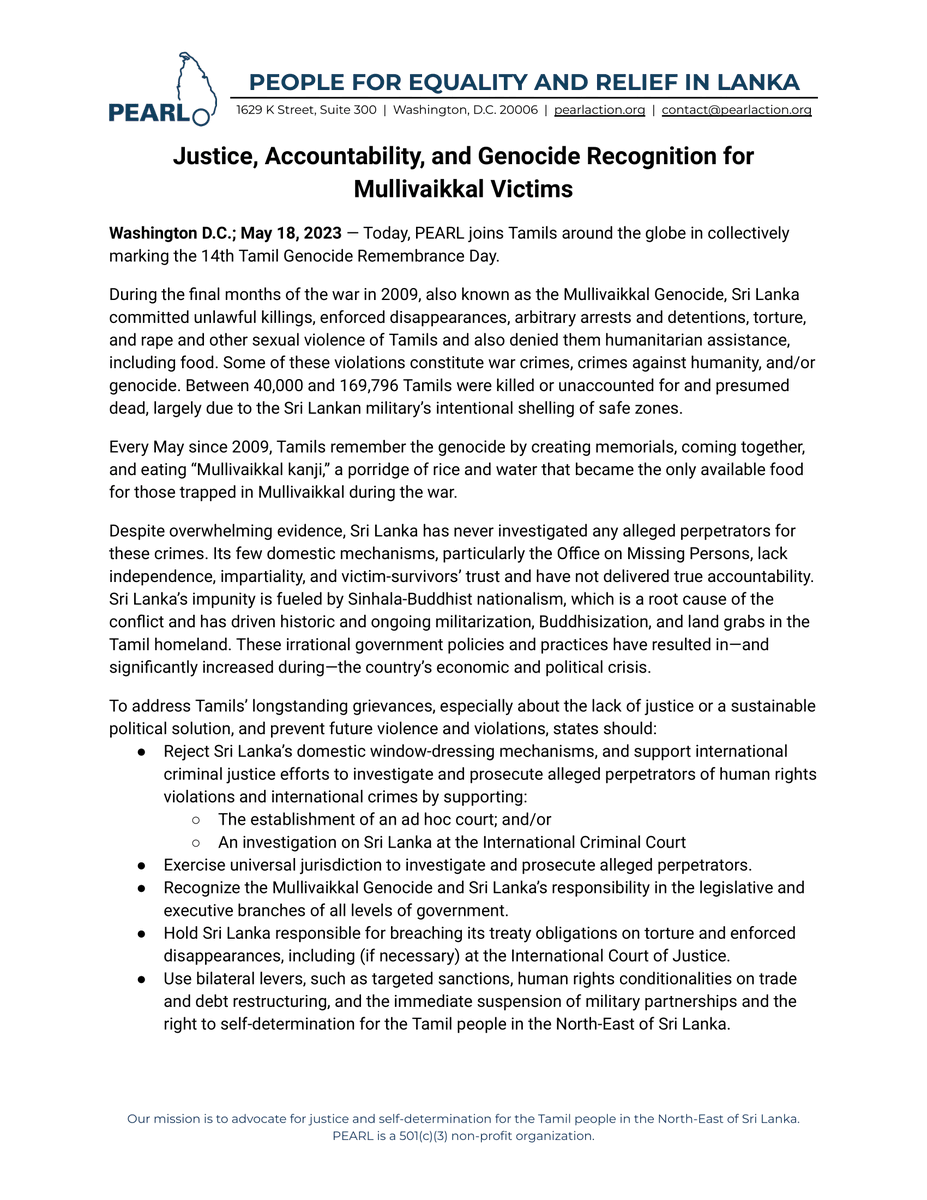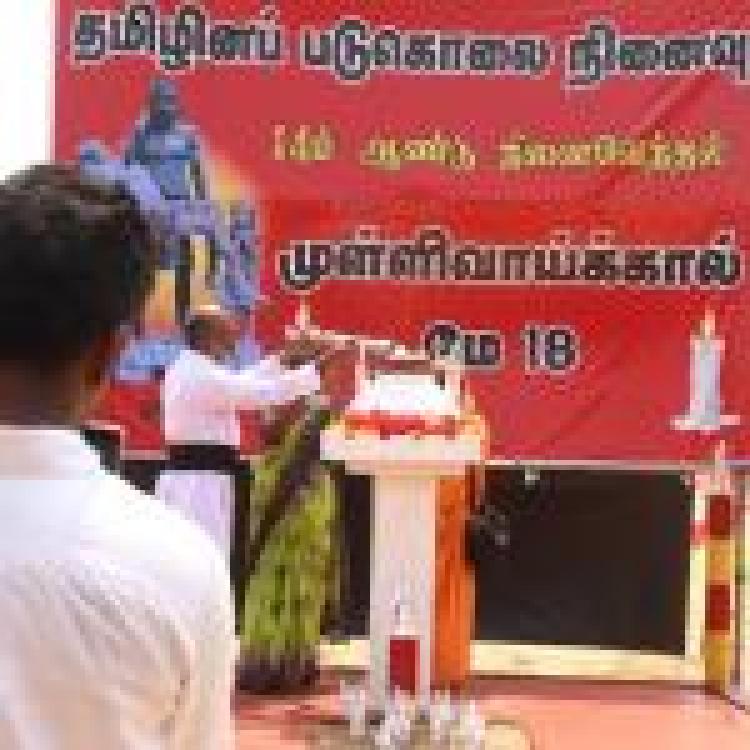
Marking the 14th Tamil Genocide Remembrance Day, PEARL notes that Sri Lanka will not implement a 'sustainable political solution' to 'prevent future violence and violations' and calls on the international states to address Tamils' longstanding grievances.
"During the final months of the war in 2009, also known as the Mullivaikkal Genocide, Sri Lanka committed unlawful killings, enforced disappearances, arbitrary arrests and detentions, torture, and rape and other sexual violence of Tamils and also denied them humanitarian assistance, including food. Some of these violations constitute war crimes, crimes against humanity, and/or genocide. Between 40,000 and 169,796 Tamils were killed or unaccounted for and presumed dead, largely due to the Sri Lankan military’s intentional shelling of safe zones."
"Despite overwhelming evidence, Sri Lanka has never investigated any alleged perpetrators for these crimes. Its few domestic mechanisms, particularly the Office on Missing Persons, lack independence, impartiality, and victim-survivors’ trust and have not delivered true accountability."
"Sri Lanka’s impunity is fueled by Sinhala-Buddhist nationalism, which is a root cause of the conflict and has driven historic and ongoing militarization, Buddhisization, and land grabs in the Tamil homeland. These irrational government policies and practices have resulted in—and significantly increased during—the country’s economic and political crisis."
"To address Tamils’ longstanding grievances, especially about the lack of justice or a sustainable political solution, and prevent future violence and violations, states should:
- Reject Sri Lanka’s domestic window-dressing mechanisms, and support international criminal justice efforts to investigate and prosecute alleged perpetrators of human rights violations and international crimes by supporting:
1) the establishment of an ad hoc court; and/or 2) an investigation on Sri Lanka at the International Criminal Court
- Exercise universal jurisdiction to investigate and prosecute alleged perpetrators.
- Recognize the Mullivaikkal Genocide and Sri Lanka’s responsibility in the legislative and executive branches of all levels of government.
- Hold Sri Lanka responsible for breaching its treaty obligations on torture and enforced disappearances, including (if necessary) at the International Court of Justice."
- Use bilateral levers, such as targeted sanctions, human rights conditionalities on trade and debt restructuring, and the immediate suspension of military partnerships and the right to self-determination for the Tamil people in the North-East of Sri Lanka.
Read PEARL's full May 18th statement here


